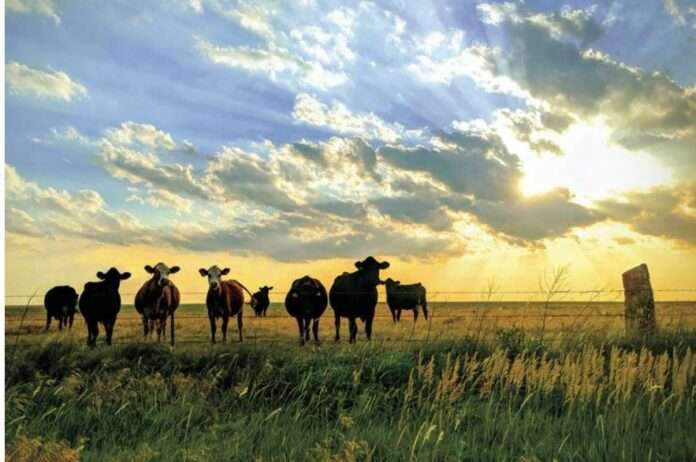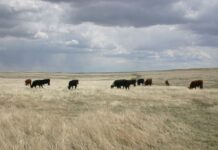K-State beef systems specialist reviews the benefits of making sure bred cattle have sufficient vitamins
MANHATTAN, Kan. – Kansas State University beef systems specialist Jaymelynn Farney is urging cow-calf producers to maintain appropriate levels of vitamin A in their herds to help minimize scours in calves and reduce retained placenta in cattle.
She recommends 30,000-45,000 international units of vitamin A per day for bred cattle to increase the chances of minimizing calf scours.
Some of the best sources of vitamin A include:
• Legumes.
• Alfalfa.
• Current year hay crop.
• Lush, leafy green forage.
• Winter cover crops.
• Yellow corn.
The most classic symptom of vitamin A deficiency is weak calf syndrome, according to Farney.
“Those calves just aren’t as thrifty and if they do get up and nurse, the cow’s colostrum is pretty low quality,” Farney said.
Vitamin A contributes to higher quality colostrum. Calves deficient in vitamin A are set back their entire life, if they do make it past birth, according to Farney.
Calves suspected of having weak calf syndrome should have samples sent to a lab for testing and the producer should work with a veterinarian and nutritionist for diagnostics.
“If your animals are on dry, dormant forage they are essentially getting no vitamin A at the time,” Farney said.
When cattle consume excessive amounts of vitamin A, they store it in their liver. When their requirements are not being met, they will use that storage to meet their requirements.
“Cattle may have 2-4 months of vitamin A stored in them,” Farney said.
-30-
K-State Research and Extension is a short name for the Kansas State University Agricultural Experiment Station and Cooperative Extension Service, a program designed to generate and distribute useful knowledge for the well-being of Kansans. Supported by county, state, federal and private funds, the program has county extension offices, experiment fields, area extension offices and regional research centers statewide. Its headquarters is on the K-State campus in Manhattan. For more information, visit www.ksre.ksu.edu. K-State Research and Extension is an equal opportunity provider and employer.
Story by:
Shelby Varner
[email protected]
More information:
Jaymelynn Farney
620-820-6125
[email protected]
Access the NEWS_ALL Home Page and Archives





